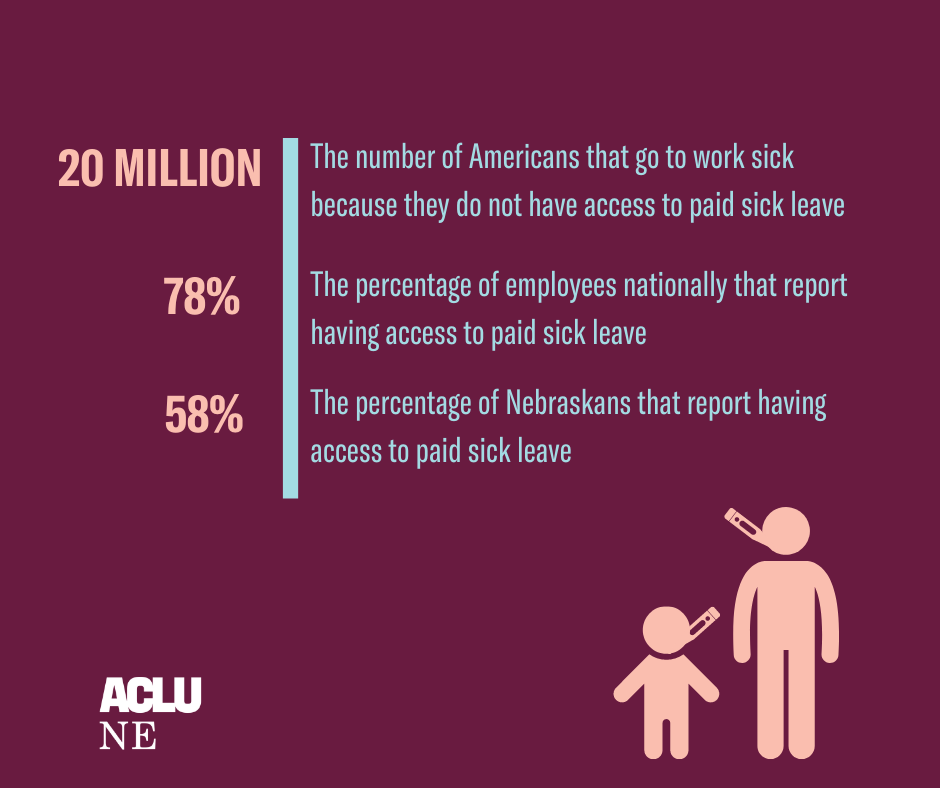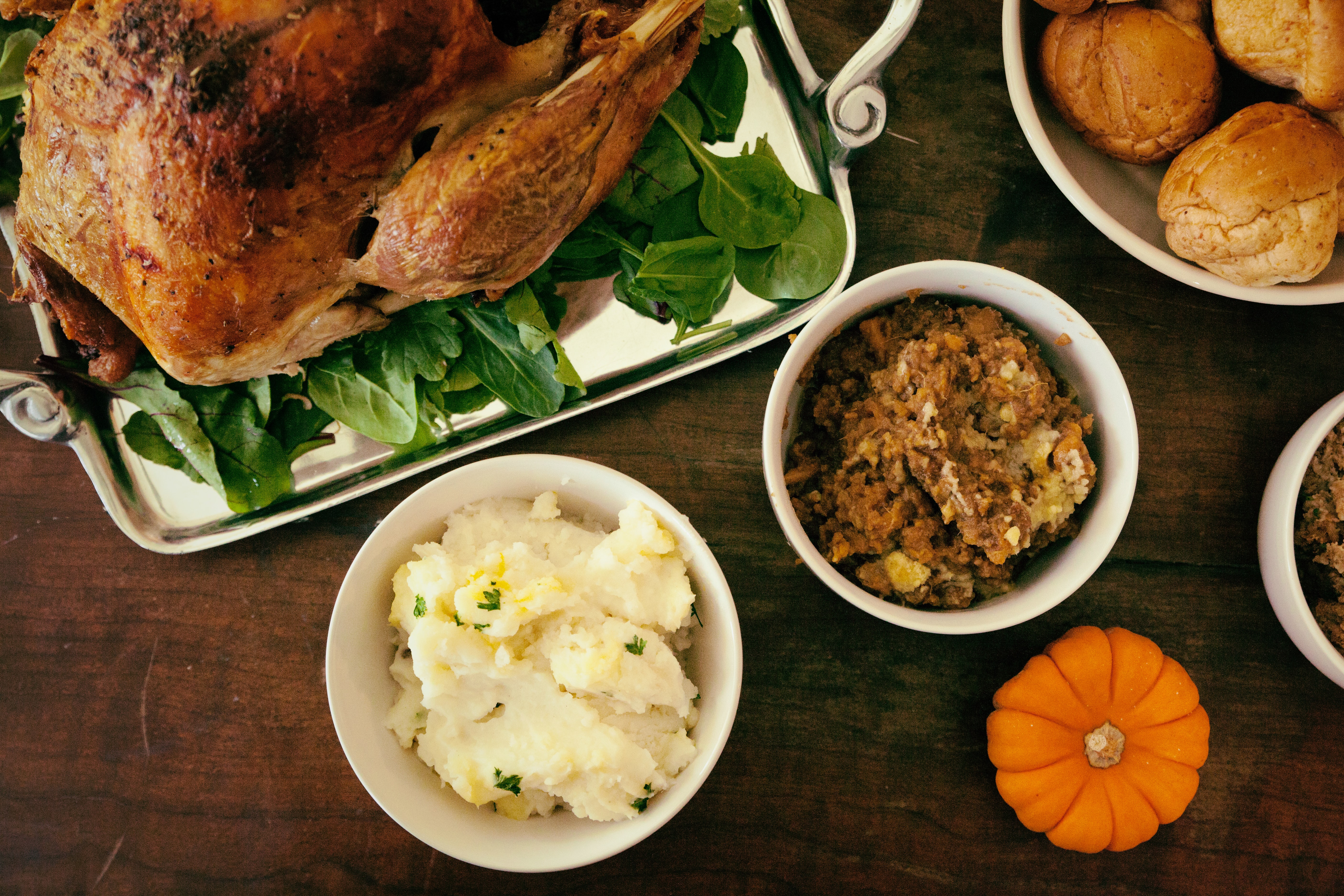Kevin Abourezk is a journalist, vice chairman of the Lincoln Indian Center Board of Directors, and a friend of the ACLU of Nebraska. We invited him to share his perspective on the community dialogue about Thanksgiving's roots and he graciously agreed. Originally published in 2020, we are resharing it for 2021.
Around this time of year, my Facebook feed explodes with pronouncements from friends and family who proclaim they are not celebrating Thanksgiving this year because they consider it a celebration of oppression and genocide of indigenous people and they want no part of that.
And every year, I have to stop and ask myself whether I will be observing Thanksgiving or not.
But like every year prior, I gathered with my family this week and ate traditional Thanksgiving fare – stuffing, corn casserole, turkey and mashed potatoes and gravy – though this year we did so alone in our home and four days before the actual holiday. We did not want to risk endangering our elderly grandparents.
I said a prayer before we began eating, thanking Tunkasila, our creator, for bringing us together and providing us with wonderful food and asking him to protect our loved ones and all who are suffering and to guide us so that we might be better vessels for his will.
As we began eating, I asked my five children to name those things for which they were thankful. This is actually a tradition for most nightly family meals we have together. My youngest daughter, Jessenia, age 7, began by expressing gratitude for her two parents, her siblings, the food before her and the house in which we enjoyed our feast.
I was proud to listen to her words and her ability to speak straight from her heart at such a young age. And I was proud of each of my children, who each came up with something a little different but equally heartfelt to say.
Not once did anyone at the table talk about the historical significance of the holiday.
In my home, Thanksgiving has nothing to do with celebrating the feast between the English settlers and Wampanoag people in 1621. It has nothing to do with commemorating an event that was followed by centuries of forced relocation, cultural assimilation, removal of Native children from their homes and into Catholic boarding schools, broken treaties and murder.
Why would we want to celebrate the greatest betrayal in American history?
What we enjoy celebrating, nay, what we must celebrate is the love we have for each other and the simple fact that we are still here.
Most tribes have long hosted annual ceremonies to give thanks for the fall harvests and for Nature’s abundance. Forced to rely on the land and its gifts for survival, Native people have become accustomed to expressing gratitude for plentiful harvests and hunts.
In the Pacific Northwest, along the Columbia River, tribes celebrate the returning salmon with salmon feasts. They do the same for the berries and other fruits they gather, as well as the root foods they collect and the other animals they hunt, including deer, elk and bighorn sheep.
So there’s nothing strange about Native people giving thanks through feasts and family gatherings, including the Thanksgiving feast.
But that doesn’t mean that in doing so we forget what happened to our people after that first Thanksgiving.
Indeed, I’ve made it one of my life’s missions to educate others about the historical roots of social injustice for Native Americans. I’ve done this through my work as a journalist for both mainstream and Native American news organizations.
I’ve also done this in my personal life, by educating people within my church about the Lakota people of South Dakota’s Pine Ridge Reservation and by educating those I encounter through my work as vice chairman of the Lincoln Indian Center Board of Directors. I’ve also worked to ensure through my social justice work that those injustices that continue to be perpetrated against Native people do not go unanswered.
And most recently, I’ve begun educating my neighbors here in Lincoln about the historical roots of Native injustice through a workshop that I host called “Roots of Injustice, Seeds of Change,” a two-hour workshop I offer to local organizations that offers a visceral insight into the origins of assimilation and genocide of indigenous people.
I first experienced this workshop in Boulder, Colorado about two years ago and felt it was the first time anyone had actually recognized the source of my own historical trauma.
Indeed, I believe every Native person suffers from some amount of historical trauma, whether they are aware of it or not.
Knowing that you come from a people whose land has been stolen and whose ancestors were murdered and betrayed and whose oppressors now call home the hills and rivers your people once roamed freely is a terrible burden and colors every encounter you have with a settler.
That doesn’t mean we treat people any different than we would want to be treated, but perhaps it makes Native people less keen to implicitly trust our neighbors and embrace them whole heartedly.
Seeing the world through our eyes – something I believe the “Roots of Injustice, Seeds of Change” workshop allows non-Native people to do if even just briefly – is a powerful antidote to the lack of understanding most non-Native people demonstrate when it comes to such questions as that of Thanksgiving.
I would invite anyone interested in attending one of these workshops to find me on Facebook and ask me about when I plan to host it next and how they can participate.
In fact, I would encourage any settler in Lincoln to research the history of the land we now call home and to find out who the original people of the Salt Basins of Lancaster County were and what became of them.
And the next time you sit down for your Thanksgiving feast, consider saying a word of thanks to the original people of the lands you now call home for allowing you to live, work and raise your children on their homelands.

